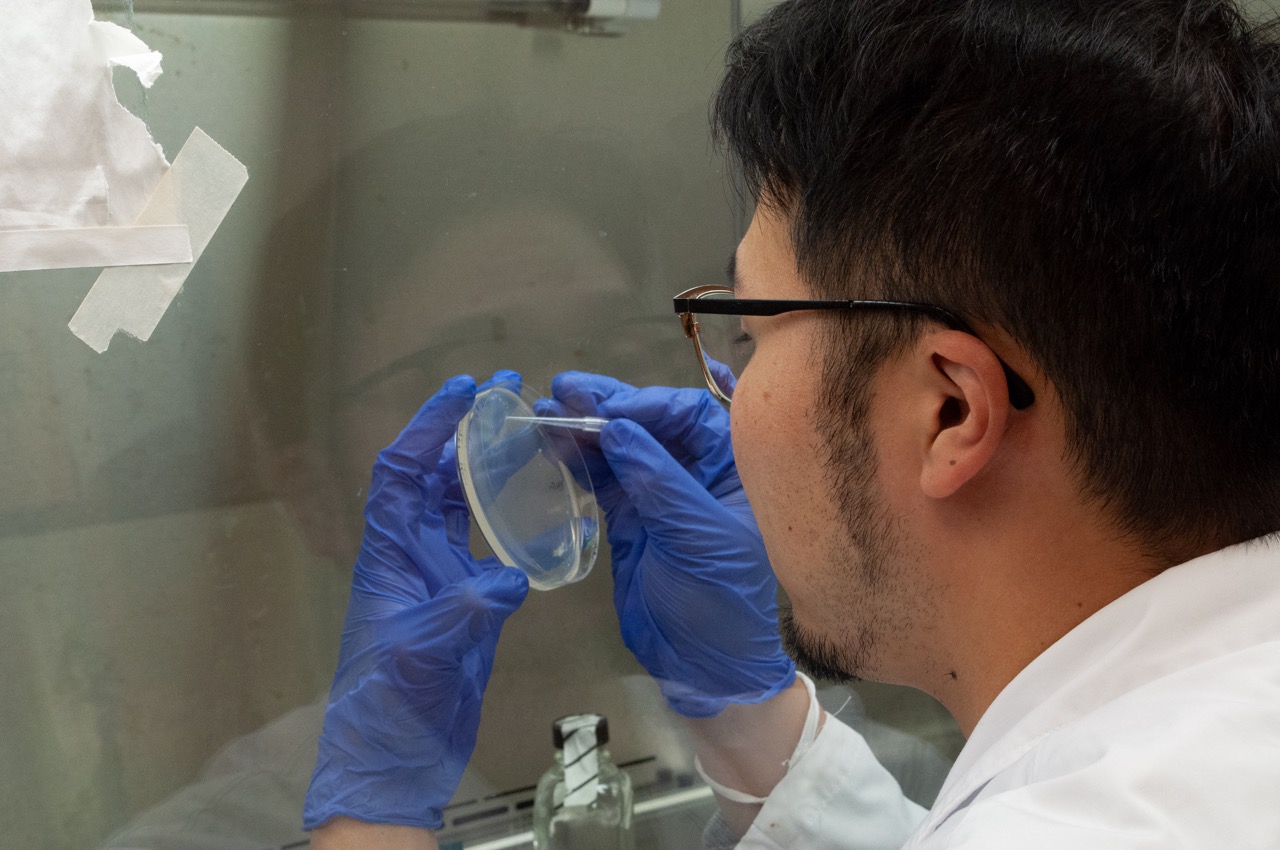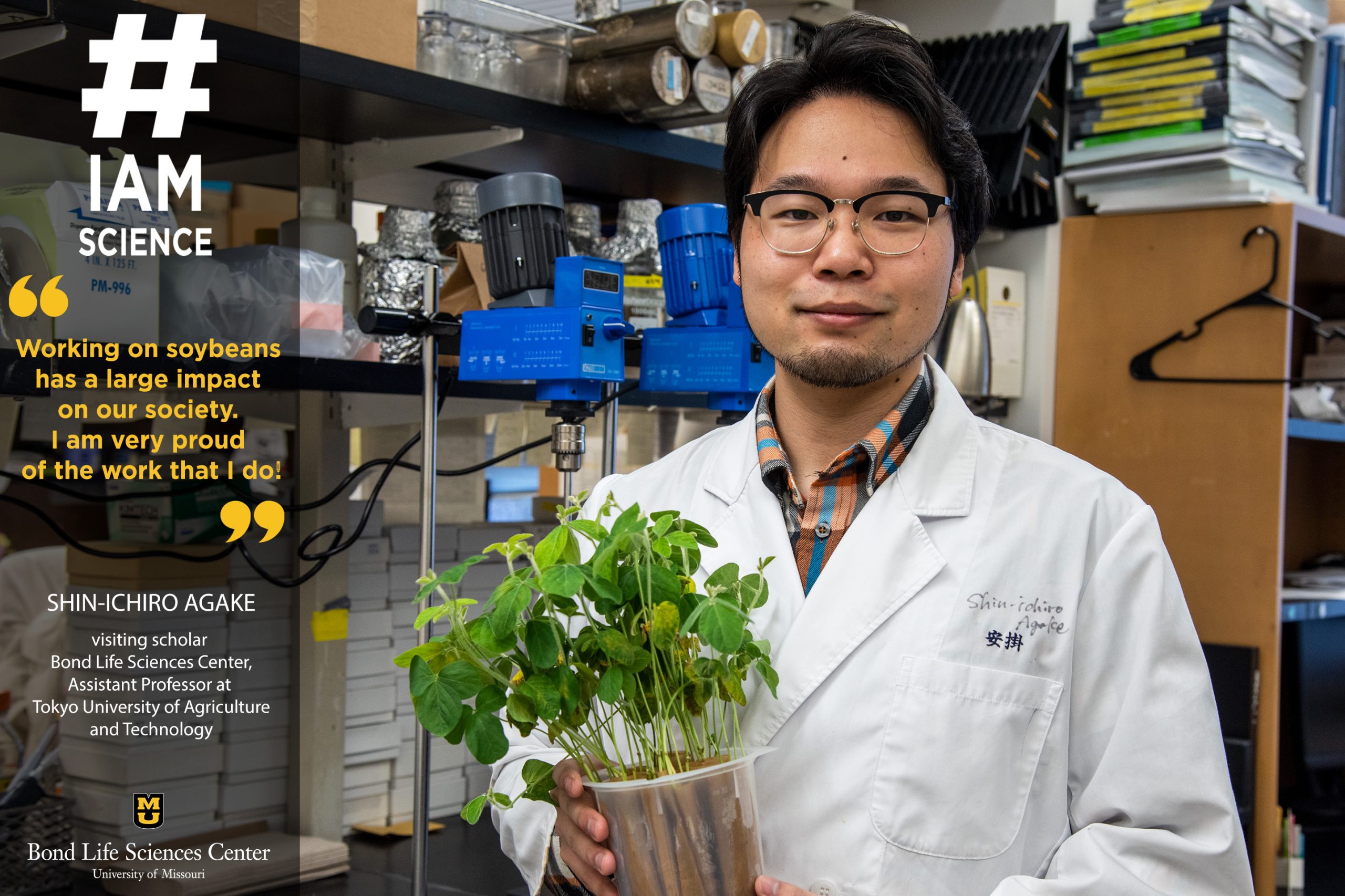Published on
It may have taken almost three years, but Shin-Ichiro Agake made it back to the Prof. Gary Stacey lab.
The Japanese native had his study abroad cut short in 2020, sending him packing, and a lot happened in that time. He got married, has a five-month-old baby, earned his Ph.D., and became an assistant professor.
“At the time I was disappointed that my research had been put on hold, but after that I tried to look ahead to the future and how I can go back to the United States again, and restart my project,” Agake said.
Now the Assistant Professor at Tokyo University of Agriculture and Technology is back at Bond LSC, studying the relationship between soybeans and bacteria.
Soybeans do not require a large amount of fertilizers because of their relationship with bacteria. The symbiotic bacteria, rhizobia, infects the roots of soybeans and helps the plant by converting nitrogen into a form the plant can utilize as food. Nitrogen is vital for plants because it allows the plant to produce essential proteins and amino acids, in addition to creating chlorophyll, the green pigment in plants.
He is trying to understand the molecular mechanisms and interactions that the bacteria have with the soybean plant. This can contribute to food production by increasing the availability and sustenance of the crop. Additionally, soybeans are rich in protein and therefore can act as a sustainable replacement to livestock, which is a source that results in environment problems and contributes to deforestation issues.
“Working on soybeans has a large impact on our society,” Agake said. “I am very proud of the work that I do!”

Agake originally landed in Bond LSC in December of 2019 through the Tobitate Japan Scholarship Program, known as “Leap for Tomorrow.” It provides a short-term study abroad opportunity to high school and college students. Participants conduct research projects formulated by their own ideas.
His work here was centered around Herbaspirillum sp., a nitrogen-fixing bacteria. The goal is to identify the important genes in this symbiotic relationship to reduce the need for chemicals, so in the future we rely less on nitrogen fertilizers that demand large amounts of energy from coal and fossil fuels.
In March 2020, the program was suspended due to COVID-19, and Agake spent the past three years finishing his Ph.D. degree in agriculture at Tokyo University of Agriculture and Technology (TUAT). His passion for work with a bigger purpose continued to develop his interest in how science and cultivation can play a part in the lives of many to counter the effects from climate change.
“I changed from working with chemistry to this research project when I learned about biological nitrogenization. I want to work towards a system that does not use a lot of energy like that. I do this type of work because of the environmental impact,” Agake said.
He returned to Bond LSC research thanks to TUAT where he feels he belongs. It provides funding for international collaboration with other labs for a maximum 3-month period. He also obtained a grant from the Japanese Society for the Promotion of Science (JSPS) for an additional nine months and may apply for another fellowship to extend his stay for two more years.
During his time in the United States and the longer he raises a family away from Japan, the more he notices the differences and similarities between the two countries.
“I enjoy barbequing, camping, and just being surrounded by nature. The States have more outdoor oriented activities than Japan, so I try to find ways to enjoy nature more.” Agake said, “I love it here!”
Back and forth between Japan and the United States, Agake has learned that he enjoys spending as much time outdoors as he can and working in the lab to contribute to agricultural discoveries. Agake finds his lab work at Bond LSC to be fulfilling because he gets to use his research in the lab to better the world around him by developing a sustainable substitute to chemical fertilizers, such as biofertilizers, and aid the environment in that way.
